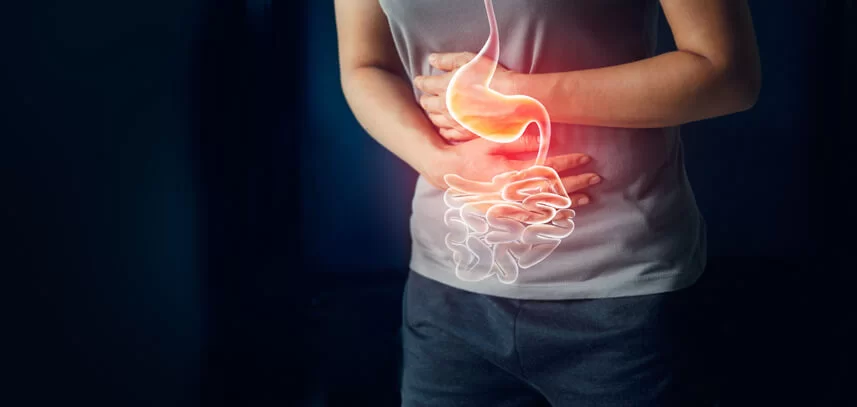Understanding Abdominal Pain Causes, Symptoms, and Treatment Options

Abdominal pain is a common symptom that can arise from a myriad of underlying causes, ranging from minor issues to severe medical conditions. It’s crucial to understand the potential causes, accompanying symptoms, and available treatment options to address this discomfort effectively.
- Types of Abdominal Pain: Abdominal pain can manifest in various ways, each indicating different possible causes. These types include:
- Generalized pain: Pain that is spread across the entire abdomen.
- Localized pain: Pain that is confined to a specific area of the abdomen.
- Cramping: Intermittent pain resembling muscle cramps.
- Colicky pain: Intense, intermittent pain that comes and goes suddenly.
- Sharp or stabbing pain: Sudden and severe pain often associated with specific conditions.
- Dull ache: Persistent, mild discomfort that may indicate chronic conditions.
- Common Causes: a. Gastrointestinal Issues: i. Indigestion: Overeating, consuming spicy foods, or eating too quickly can lead to abdominal discomfort. ii. Gastritis: Inflammation of the stomach lining, often caused by infection or long-term use of NSAIDs. iii. Gastroenteritis: Commonly known as the stomach flu, caused by viral or bacterial infections. b. Gastrointestinal Disorders: i. Irritable bowel syndrome (IBS): Characterized by abdominal pain, bloating, and changes in bowel habits. ii. Crohn’s disease: A type of inflammatory bowel disease (IBD) causing inflammation of the digestive tract. iii. Ulcerative colitis: Another form of IBD, leading to inflammation and ulcers in the colon and rectum. c. Reproductive Issues: i. Menstrual cramps: Pain experienced by many women during menstruation due to uterine contractions. ii. Ovarian cysts: Fluid-filled sacs that form on the ovaries, causing abdominal pain or discomfort. iii. Endometriosis: A condition where tissue similar to the lining of the uterus grows outside the uterus, often leading to pelvic pain. d. Other Causes: i. Kidney stones: Hard deposits of minerals and salts that form in the kidneys, causing severe abdominal pain as they pass through the urinary tract. ii. Appendicitis: Inflammation of the appendix, typically causing severe, localized pain in the lower right abdomen. iii. Pancreatitis: Inflammation of the pancreas, often triggered by gallstones or excessive alcohol consumption.
- Symptoms: Alongside abdominal pain, other symptoms may accompany specific conditions, providing clues to the underlying cause. These symptoms may include:
- Nausea and vomiting
- Diarrhea or constipation
- Fever or chills
- Bloating or gas
- Blood in stool or urine
- Difficulty swallowing
- Jaundice (yellowing of the skin and eyes)
- Diagnosis: Diagnosing the cause of abdominal pain often involves a combination of medical history review, physical examination, and diagnostic tests such as:
- Blood tests to assess for signs of infection or inflammation
- Imaging tests such as ultrasound, CT scan, or MRI to visualize internal organs
- Endoscopic procedures like colonoscopy or upper endoscopy to examine the gastrointestinal tract
- Urinalysis to check for signs of kidney or urinary tract issues
- Treatment Options: Treatment for abdominal pain depends on the underlying cause. Options may include:
- Medications: Over-the-counter pain relievers, antacids, or prescription medications to address specific conditions.
- Lifestyle changes: Dietary modifications, stress management techniques, and regular exercise can help manage certain gastrointestinal issues.
- Surgical intervention: In cases of severe conditions like appendicitis or gallstones, surgery may be necessary to remove the affected organ or tissue.
- Therapies: Physical therapy or psychotherapy may be beneficial for conditions like IBS or chronic abdominal pain of unknown origin.
- Prevention: While not all causes of abdominal pain are preventable, adopting a healthy lifestyle can reduce the risk of certain conditions. This includes:
- Eating a balanced diet rich in fiber and nutrients
- Drinking plenty of water to stay hydrated
- Avoiding excessive alcohol consumption and tobacco use
- Managing stress through relaxation techniques or counseling
- Following proper hygiene practices to prevent infections
Conclusion:
Abdominal pain is a common symptom that can stem from various causes, ranging from minor issues to serious medical conditions. Understanding the types, causes, symptoms, and treatment options is essential for effective management and timely intervention. If you experience persistent or severe abdominal pain, it’s crucial to seek medical attention promptly for proper evaluation and diagnosis. Remember, early detection and treatment can lead to better outcomes and improved quality of life.



